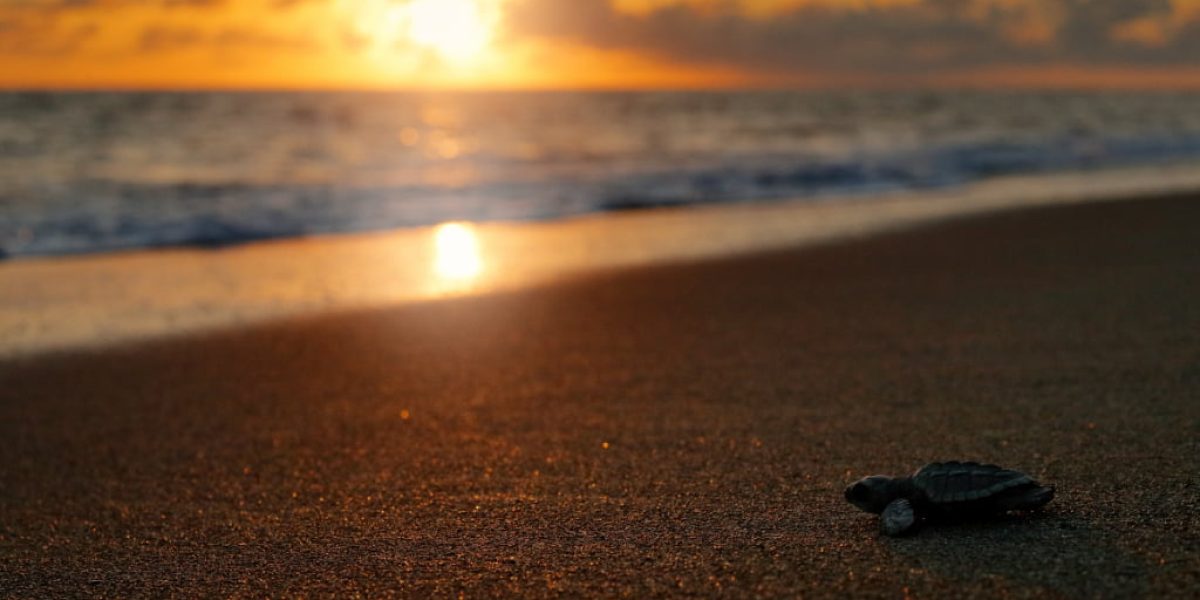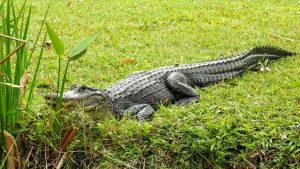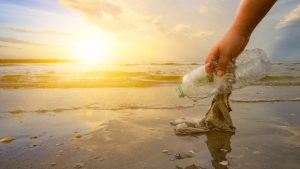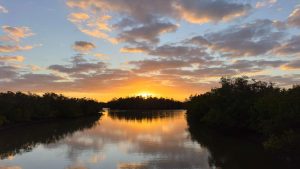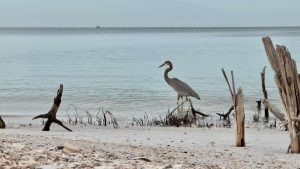As you enjoy your time on the beaches of Lovers Key this summer, remember that it is sea turtle nesting season. These wonderful, ancient sea animals make their nests on the beaches of Southwest Florida every year from May to October, with the peak occurring in June. Because some of the species are threatened or endangered, it is critical that visitors to Lovers Key do their part to make sure these animals have a successful turtle nesting season.
Facts About Sea Turtles.
Sea turtles are found in tropical and semitropical waters around the world. The most common species of sea turtles in Southwest Florida are Leatherbacks, Green Turtles, and Loggerheads. These sea creatures have a life span of between 80 and 100 years. Leatherbacks are the largest, reaching a length of four to eight feet and weighing up to 2,000 lbs. Green Turtles and Loggerheads are three to four feet in length and weigh from 240 to 400 lbs. As large as these gentle animals are, their eggs and hatchlings are vulnerable to predators and, unfortunately, human activities.
At night, female marine turtles crawl up the beach above the tideline and lay about 100 eggs in the sand making them vulnerable to raccoons, alligators, sea birds, and other predators. About 85% of the eggs develop into hatchlings, and about 10% of the surviving hatchlings are eaten by birds, crabs, and mammals before getting back into the water. Then, only 6% make it to their first birthday. That’s why we need to do all we can to protect them.
What You Can Do During Turtle Nesting Season.
- Protect their environment. At night, keep the beaches clear of anything that may be an obstacle. These include beach chairs, umbrellas, toys, etc.
- Remove trash every day. Turtles can mistake a plastic bag for food and that could lead to death.
- Knock down sandcastles and, more importantly, fill in large holes in the sand. Nesting mothers can be trapped after falling into holes.
- Do not attract unwanted pests. Small mammals, such as raccoons, destroy thousands of turtle eggs each year. They are one of the leading causes of turtle hatchling death in Florida. So, secure your trash bins, clean up your food after a day at the beach, and don’t leave food outside for neighborhood dogs and cats.
- Use sea turtle friendly lighting or no outside lighting at all. Also, close drapes and blinds. Female turtles may not nest if there are too many bright lights. Hatchlings are easily disoriented by the bright lights and may head toward them rather than the safety of the ocean.
- Finally, be alert while enjoying your walk on the beach and stay away from marked turtle nesting sites. If you run across a sick, stranded, or injured turtle, or if you witness harassment of sea turtles or someone disturbing the nest, call the FWC Wildlife Alert Number, 1-888-404-3922.
Enjoy your stay on Lovers Key. Maybe you will be lucky enough to spot one of these gentle creatures. If not, by following these few guidelines, you will be doing your part in protecting these wonderful turtles for future generations.

